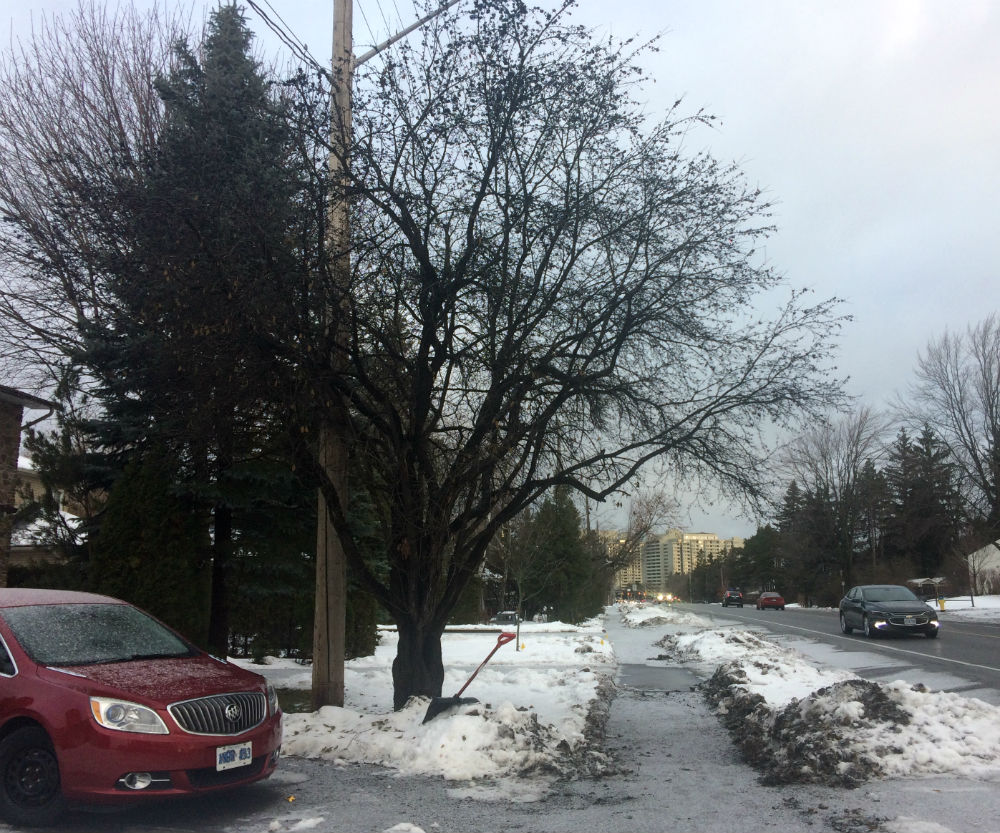
Since 2013, Kitchissippi made the most calls on tree related issues, according to an analysis from a 311 dataset.
The most common calls are for too big/unsightly trees. Among the top five wards for this category are River, Capital, Alta Vista and Gloucester – Southgate.
Tracey Schwets, the Program Manager of the Forest Management Branch at 311 Ottawa, explains in an email that these calls usually refer to branches touching a house, or requesting clearance space.
Schwets adds this normally means a caller is asking for a tree to be pruned.
“Pruning a tree doesn’t mean that you’re stunting it’s growth, it just means that maybe your helping shape its growth in a way that works better with …the ecosystem.” says Lauren Latour, the community organizer and campaign coordinator for Ecology Ottawa.
However, some people ask for trees to be pruned for aesthetic reasons, mostly because of the mess from sticky sap or fallen nuts, says David Koshurba, co-owner of Croft Tree Experts.
Koshurba explains pruning is meant to help trees, but since it can also stress them, it is important to avoid touching unhealthy trees and look for signs if one needs to be trimmed, such as damage, disease, or if two limbs are rubbing against each other.
He adds if improperly pruned, a tree could “open the door” for other diseases, fungus and insects.
“In the long run, it’s almost life or death for us. If we don’t have trees, we are not going to be able to survive as a species,” says Koshurba, who loves big oak trees. “Especially in city areas, there’s a lot more pollution, a lot more traffic, so to preserve a city tree is a lot more important.”
Koshurba says even though some people have aesthetic goals, others love their trees and let it grow without realizing that pruning may help. He adds more people are caring about their trees after witnessing the damage after the Tornado earlier this year.
“If you take care of your trees, even in those situations, you’re going to have a better chance of the tree surviving and a less chance of stress,” he explains. “Most of the trees (that came down) were stressed already before the Tornado hit.”
The City of Ottawa owns 330,000 trees, asking citizens to help maintain them by requesting pruning services to control pests and remove safety hazards in case storms.
Schwets adds a tree is never removed for aesthetic reasons, only if a Forest inspector deems it necessary. The city is also required to replace the tree, if possible, through the Trees in Trust program.
Latour, who lives on the border of Rideau-Vanier and Centretown, works in the Tree Ottawa Campaign, which gives away saplings for citizens’ yards.
“Trees are almost always worked into a city scape because people who work in urban planning understand the value of a tree,” explains Latour.
Latour was born in London Ontario, which she says is known as “The Forest City.” She adds when she used to visit her grandmother in Florida, she fell in love with the massive, wild oak trees.
“There’s studies that showed that increased exposure to …nature is extremely beneficial to our mental health and our physical state and well-being,” says Latour.
Latour agrees that some people may have an aesthetic idea or order on what they want their city landscape to look like, and admits her mother’s tree makes a mess by dropping seed pods, which would temporarily stain the concrete.
However, she says trees provide great health benefits to cities, and even solutions to global warming by filtering water and carbon dioxide or preventing soil erosion.”
“The number of benefits that trees offer us, (aesthetics) seems like a minor thing,” says Latour. “I do struggle with why somebody would complain about a tree, maybe cleaning up acorns in front of your house is a pain in the butt.”
